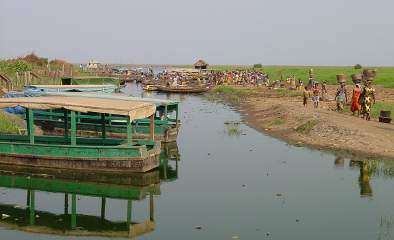The water sector is characterized by a sector-based management framework and a lack of collaboration and dialogue between stakeholders. Catchments and water uses are not controlled and do not fall under any enforced regulation.
Benin has recognized the need for integrated water resources management (IWRM) since 1998 and the government initiated a programme to develop a IWRM plan in 2002. Benin's action plan for IWRM includes 54 Actions for adoption by the Council of Ministers. During the planning process, a draft of a new water law, as the only water-specific regulation, was also submitted to the Parliament for adoption in July 2007. In addition a national water policy was developed and adopted by the government in July 2009.
The Global Water Partnership provided important support to the planning process. Benin benefited from the Partnership for Africa’s Water Development programme for the process, which shows how a common agreement was achieved based on the understanding of IWRM and how stakeholders with proven experience and competence were involved. During the process, a drafting Committee made up of national experts and supported by national and international consultants was set up. All relevant ministries, civil society, universities, private sector and NGOs constituted important part in the process.
Advocacy, capacity building and involvement of key players are crucial components in the process. It is also necessary to reorganize the institutional framework following the IWRM principles since relative abundance of water resources should not overlook the need for planning and rational management of these resources to support national development needs.
Read the full case study in the GWP ToolBox.

